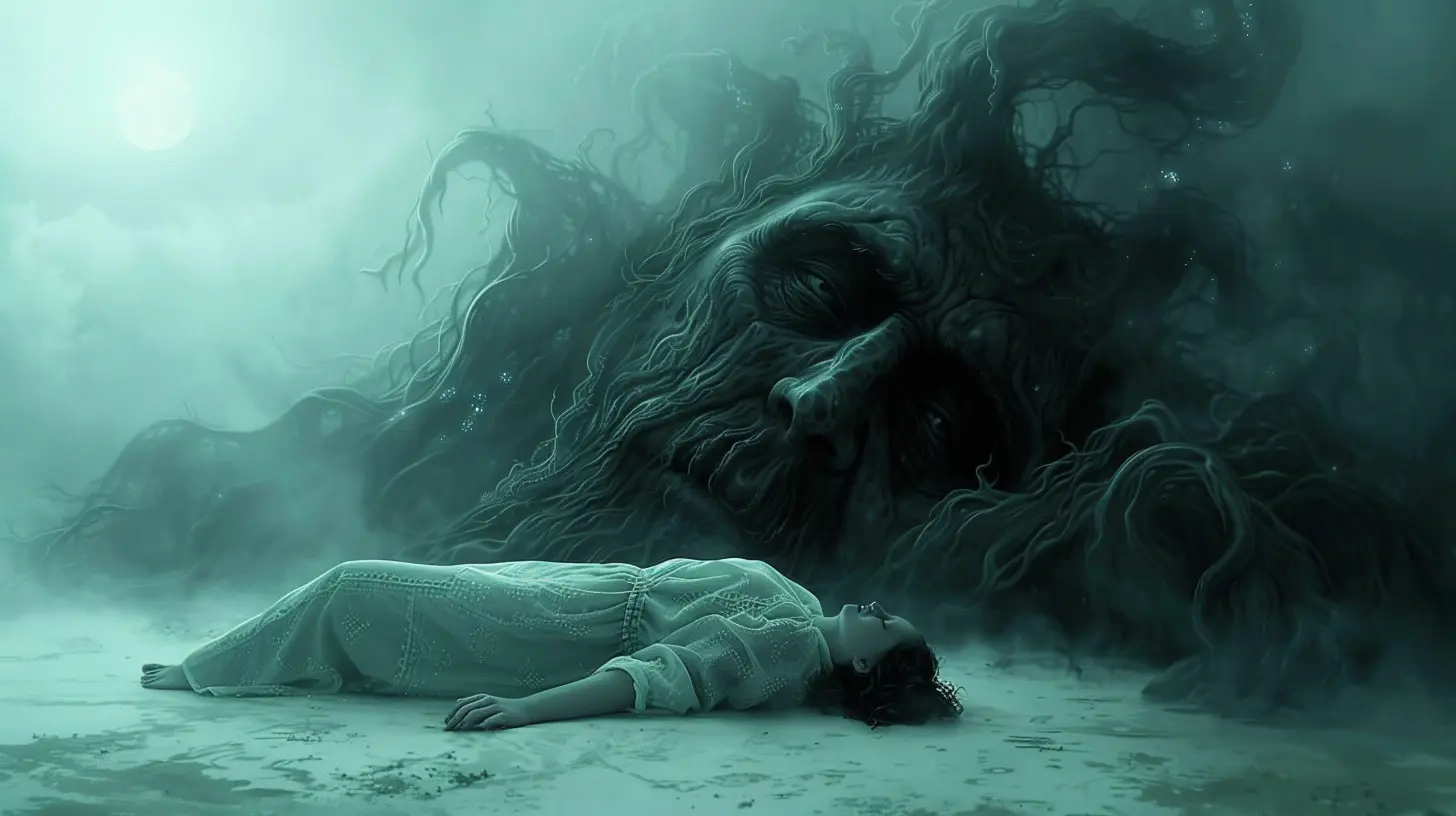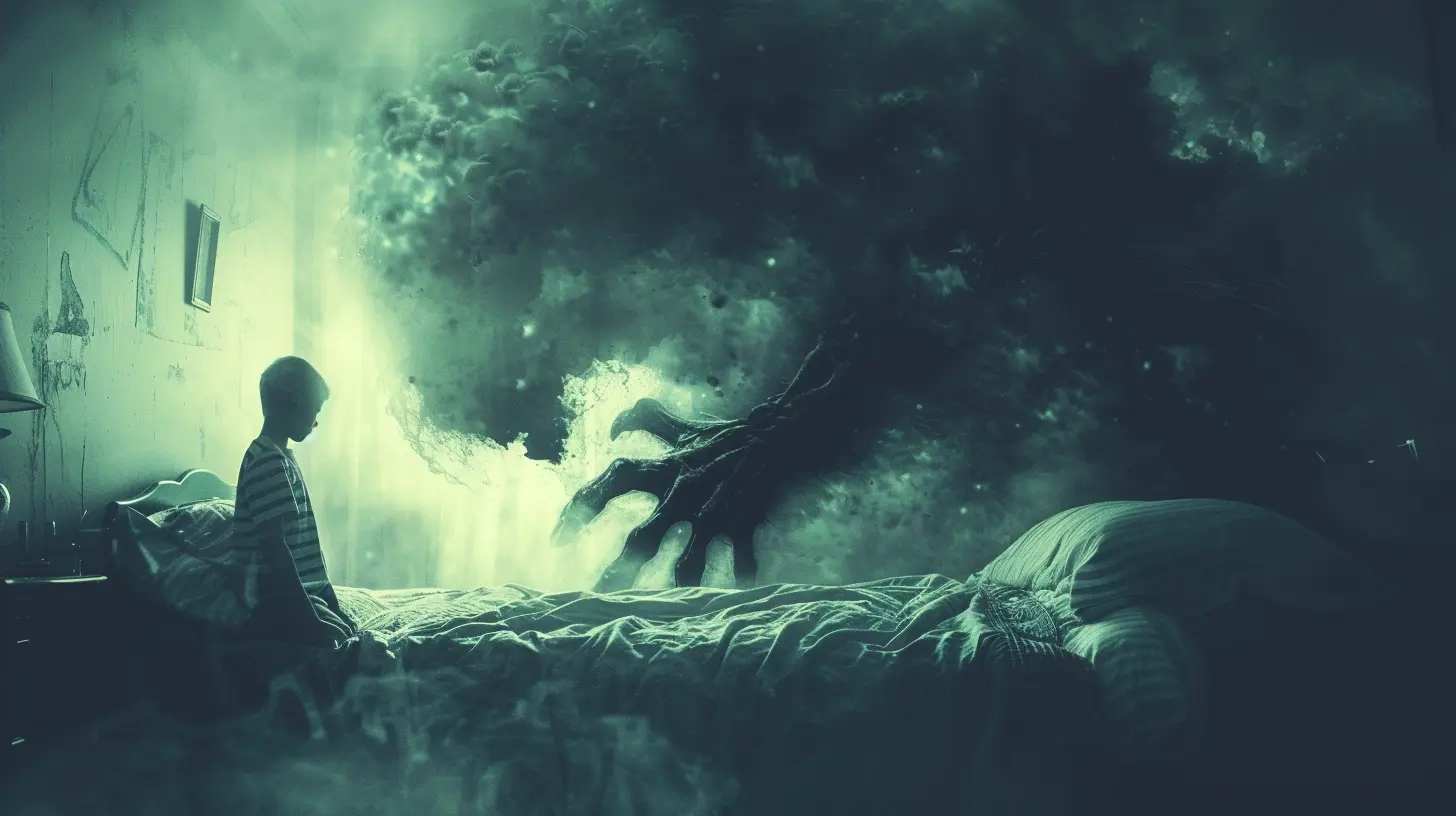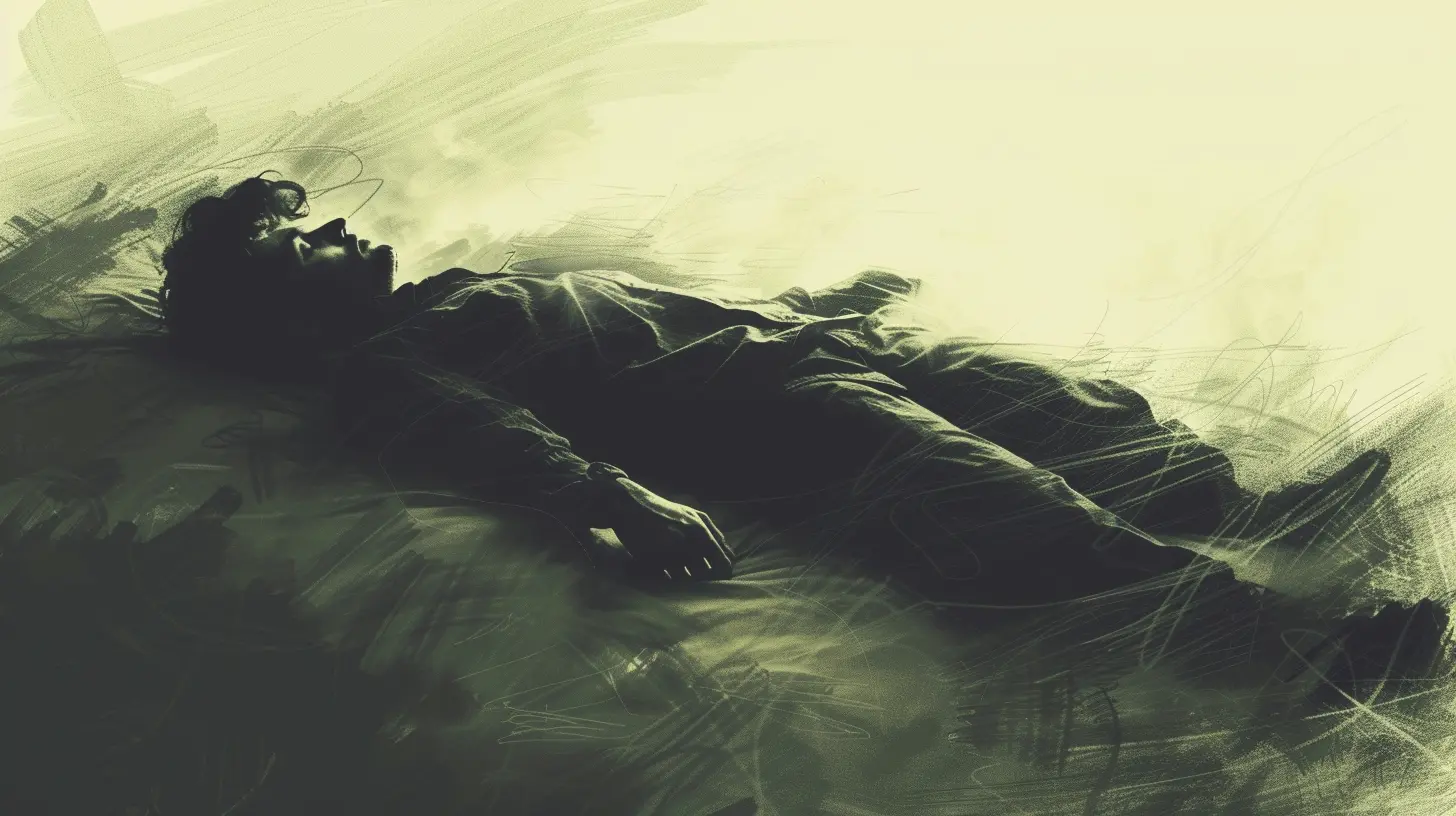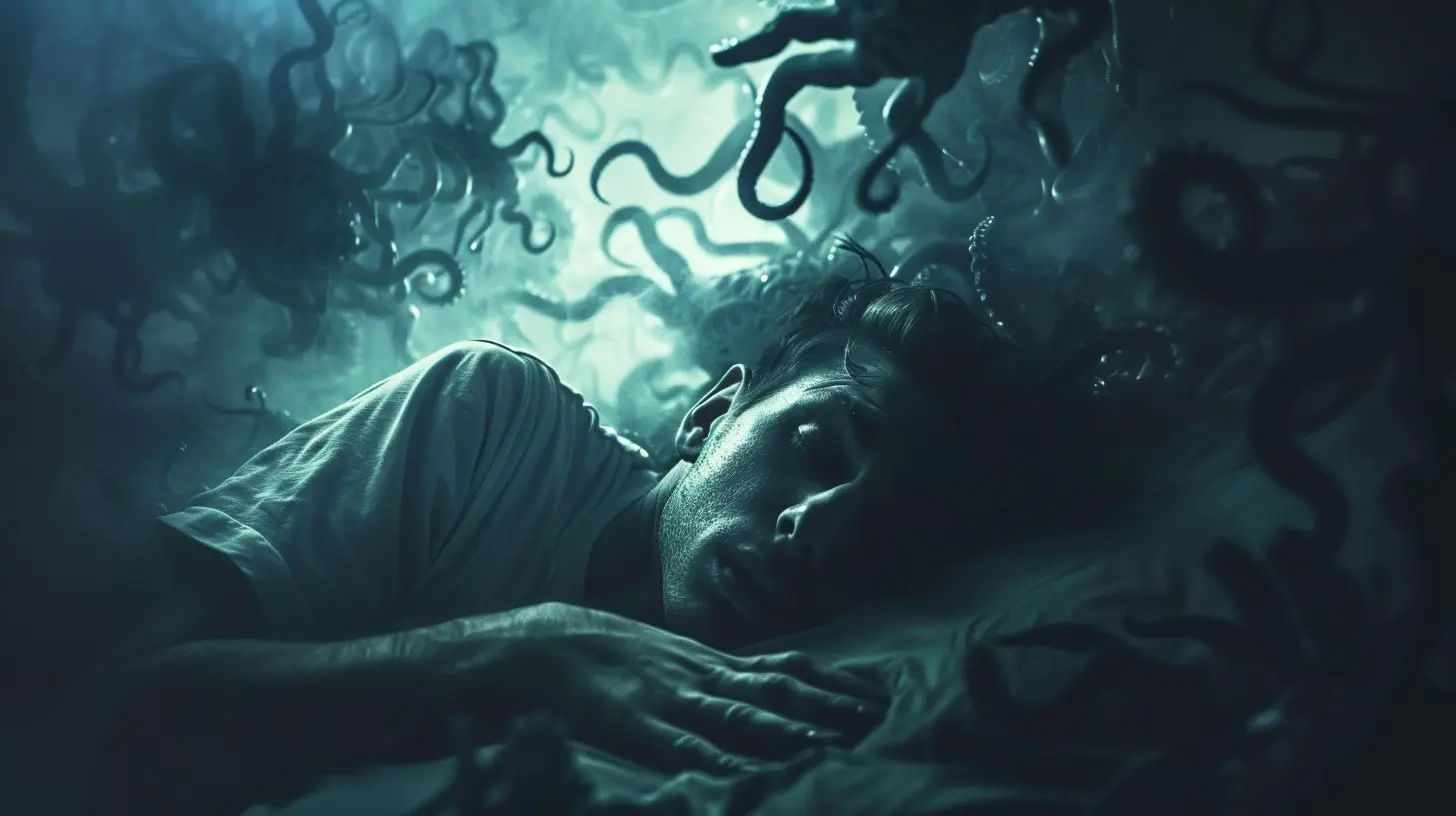Sleep Paralysis: Understanding This Terrifying Experience
14 June 2025
Have you ever woken up in the middle of the night, unable to move, feeling as if something sinister is lurking nearby? If so, you're not alone. This chilling phenomenon is known as sleep paralysis, and while it's not dangerous, it can be downright terrifying. Imagine being trapped in your own body, fully aware but completely immobilized—it sounds like something out of a horror movie, right?
But what exactly causes sleep paralysis? Is it just your brain playing tricks on you, or is there something more sinister at play? Let's break it down and uncover the truth behind this eerie experience. 
What Is Sleep Paralysis?
Sleep paralysis is a phenomenon that occurs when you wake up or fall asleep and find yourself unable to move or speak. During these episodes, many people report feeling an overwhelming sense of fear, suffocating pressure on their chest, or even seeing dark, shadowy figures lurking in the room. While this might sound like something supernatural, science has a solid explanation for what's really happening.The human body naturally goes into a state of paralysis during REM (Rapid Eye Movement) sleep to prevent us from acting out our dreams. However, when sleep paralysis strikes, the brain wakes up before the body does, leaving you stuck in a terrifying limbo—aware of your surroundings but unable to move. 
Common Symptoms of Sleep Paralysis
If you've never experienced sleep paralysis, count yourself lucky. But for those who have, the symptoms are all too real and unforgettable:- Inability to move or speak despite being fully aware
- A feeling of pressure on the chest, as if something heavy is sitting on you
- Hallucinations, such as seeing shadowy figures, demons, or even hearing unsettling whispers
- A sense of suffocation or difficulty breathing
- Intense fear or panic
The good news? Sleep paralysis is typically harmless and lasts only a few seconds to a couple of minutes. But in the moment, it can feel like an eternity. 
What Causes Sleep Paralysis?
So why does this terrifying experience happen in the first place? While the exact cause remains unclear, several factors are known to trigger sleep paralysis:1. Disrupted Sleep Patterns
Pulling all-nighters, working irregular shifts, or simply not getting enough sleep can throw off your body's natural rhythm, increasing the likelihood of sleep paralysis.2. Sleep Disorders
Conditions like narcolepsy and insomnia can heighten your chances of experiencing sleep paralysis. If you've been struggling with poor sleep, this might be the reason behind those eerie episodes.3. Sleeping on Your Back
Believe it or not, your sleep position matters. Studies suggest that sleeping on your back may increase the chances of experiencing sleep paralysis, possibly due to airway obstruction or changes in neural activity.4. Stress and Anxiety
Ever notice how sleep paralysis tends to strike during stressful times? High levels of anxiety can mess with your sleep cycle and make your body more prone to these bizarre episodes.5. Substance Use
Drugs, alcohol, and even some medications can interfere with your sleep cycle and may contribute to sleep paralysis.6. Lucid Dreaming and Sleep Paralysis Connection
People who practice lucid dreaming or have very vivid dreams may also be more susceptible to sleep paralysis. Since both conditions involve heightened awareness during REM sleep, it's possible that they share a neurological link.
The Link Between Sleep Paralysis and Hallucinations
One of the most frightening aspects of sleep paralysis is the hallucinations that often accompany it. These hallucinations fall into three main categories:1. The Intruder Hallucination
Many people report sensing a malevolent presence in the room—something dark, shadowy, and ominous. Some even describe hearing whispers, footsteps, or seeing eerie figures lurking in the shadows.2. The Incubus Hallucination
This involves a crushing pressure on the chest, as if something is sitting or pressing down on you. Some cultures associate this with demons or supernatural entities, but in reality, it's likely a result of disrupted breathing patterns during sleep paralysis.3. Vestibular-Motor Hallucinations
These hallucinations create a sensation of floating, flying, or even feeling pulled out of your own body. Some people interpret these experiences as out-of-body experiences, further fueling supernatural beliefs.But why do these hallucinations feel so real? It all comes down to the brain being in a half-dreaming, half-awake state. Your mind is still partly in REM sleep, where dreams occur, but your body is awake enough to sense its surroundings. The result? A terrifying blend of reality and nightmares.
Is Sleep Paralysis Dangerous?
The short answer? No. While it's certainly scary, sleep paralysis isn't harmful and doesn’t cause any long-term physical effects. However, the fear and anxiety that come with it can lead to sleep deprivation, which can negatively impact overall health. If sleep paralysis becomes frequent and disrupts your sleep, it's worth addressing underlying factors like stress, sleep habits, or possible sleep disorders.How to Prevent Sleep Paralysis
The good news? You don’t have to live in fear of your next sleep paralysis episode. By making some lifestyle changes, you can reduce your chances of experiencing it.1. Improve Your Sleep Habits
- Aim for 7-9 hours of sleep each night.- Keep a consistent sleep schedule, even on weekends.
- Avoid screens (phones, laptops, TV) at least 30 minutes before bed to minimize blue light exposure.
2. Manage Stress and Anxiety
- Practice meditation or deep breathing exercises before bed.- Keep a journal to offload worries and clear your mind.
- Consider therapy if anxiety is interfering with your sleep.
3. Adjust Your Sleeping Position
If you sleep on your back and frequently experience sleep paralysis, try switching to your side or stomach instead.4. Avoid Stimulants Before Bed
Caffeine, nicotine, and alcohol can all interfere with your sleep cycle, making sleep paralysis more likely.5. Treat Any Underlying Sleep Disorders
If you suspect that conditions like narcolepsy or insomnia are contributing to your sleep paralysis, consulting a sleep specialist may be beneficial.When to See a Doctor
While occasional sleep paralysis is completely normal, frequent episodes could be a sign of an underlying issue. If sleep paralysis is causing extreme distress, insomnia, or daytime exhaustion, it might be time to speak with a doctor or sleep specialist to rule out any medical conditions.Final Thoughts
Sleep paralysis is one of the eeriest sleep phenomena out there, but at its core, it's simply a mix-up between sleep and wakefulness. While it can be terrifying, understanding the science behind it helps take away some of the fear.So the next time you find yourself trapped in your own body during sleep, remember—you're not alone, you're not in danger, and it will pass. Sweet dreams!
all images in this post were generated using AI tools
Category:
Sleep DisordersAuthor:

Angelo McGillivray
Discussion
rate this article
3 comments
Jacqueline McClary
Thank you for shedding light on sleep paralysis. Your insightful article offers comfort to those who feel isolated in their experiences. Understanding this phenomenon can be empowering, and I hope more people find solace and knowledge through your writing.
June 22, 2025 at 2:59 AM

Angelo McGillivray
Thank you for your kind words! I'm glad the article resonated with you and helped bring awareness to sleep paralysis. Your support means a lot!
Paxton Love
Fascinating topic! I’d love to learn more!
June 17, 2025 at 2:57 PM

Angelo McGillivray
Thank you! I appreciate your interest. Feel free to check out the resources linked in the article for more information!
Kate Rivera
Great article! Sleep paralysis can be a scary experience, but understanding it makes it less daunting. Knowledge truly is power! Here’s to peaceful nights and restful sleep for everyone! 🌙✨
June 17, 2025 at 2:51 AM

Angelo McGillivray
Thank you for your kind words! I'm glad you found the article helpful. Here's to more peaceful nights for all! 🌙✨



